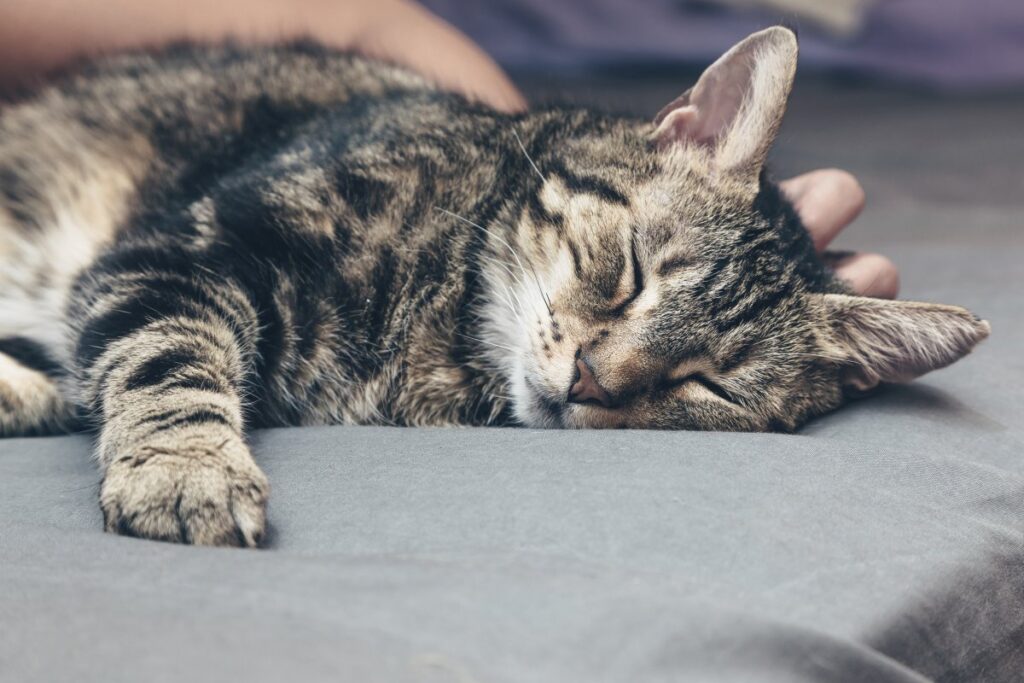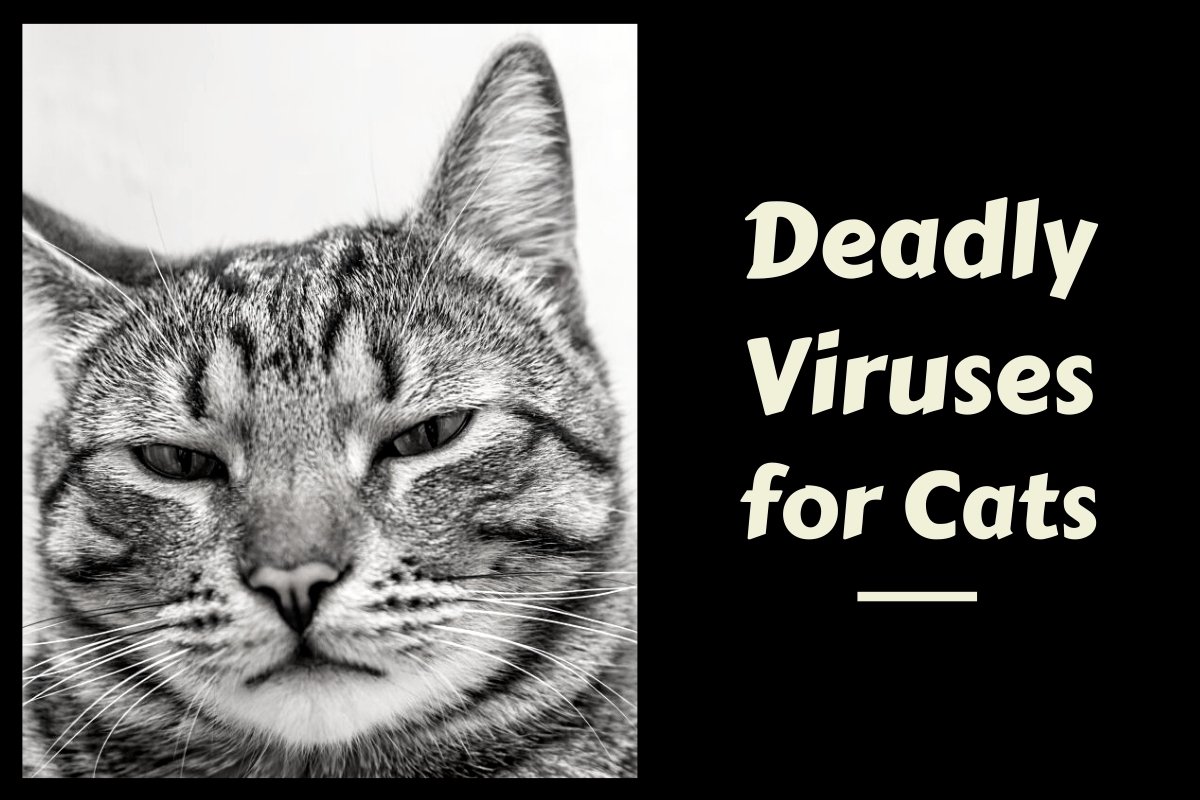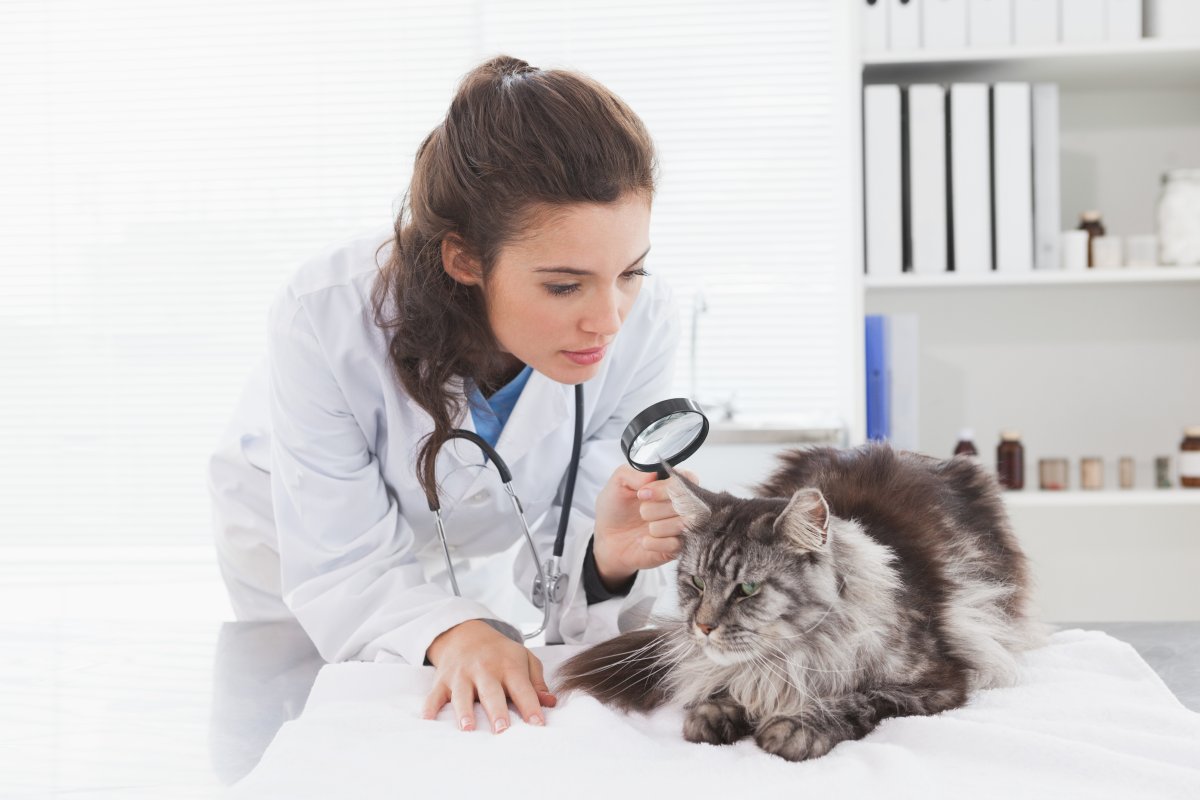Some viruses are so lethal that they can even kill your cat…
Being a cat parent isn’t an easy job to be done. It would be best if you were alert, responsible, and sometimes a little extra cautious too. Your job becomes challenging when you have a sensitive pet. However, cats are considered resilient animals that quickly get along and socialize in public.
A cat can bring unconditional love and happiness to your life. Having a feline can improve your mood and health and also help to relieve stress. However, this animal is a little sensitive and needs extra care and love from the owner. Some cats are playful, and some don’t like going out much. Like humans, cats own a variety of behaviors in their personalities that differentiate them from each other. Timid cats are not easily handled, and they get irritated.
On the other hand, those outgoing and energetic cats are loved by everyone. They make their presence unique in every situation. However, with the changing seasons, your cat will also change accordingly. You might notice some abnormal actions which your cat will perform in some instances. For example, in scorching heat or on a hot sunny day, your cat will feel low and needs some calm winds. Please turn on your AC for some time and see how she feels. It will surely make her calm.

Similarly, on cold and freezing nights, your cat might feel cold, and this is your responsibility to make her comfort your priority. A protected, warm corner with a soft blanket will be a choice to make for your lovely kitty.
Unfortunately, all these things bring some diseases and new viruses as well. As a cat owner, it is necessary to recognize the signs and symptoms of common illnesses so that you can find veterinary help for your feline in a short period. Read the article to identify the diseases and other medical inflictions that impact your cat.
Viruses That Can Harm Your Cat
Feline Immunodeficiency Virus (FIV)
It is a kind of virus that occurs in cats that doesn’t show any symptoms in the initial stages but years after it appears as a severe one. Even the virus has a slow-acting rate, but once it takes hold, a cat’s immune system will be severely affected. It might also make the body vulnerable to secondary infections.
These infected cats should receive supportive care and stay stress-free and relaxed after getting proper treatment. The FIV virus never shows symptoms for years, but it progresses continuously once it develops. FIV cannot be transmitted to humans; it can only transfer from cat to cat.
Signs of a cat infected by FIV:
- Fever
- Weight loss
- Anemia
- Enlarged lymph nodes
- Poor appetite
- Disheveled coat
- Diarrhea
- Gums inflammation
- Dental disease
- Hair loss and skin redness

Feline Leukemia Virus (FeLV)
Feline leukemia virus is a transmittable RNA retrovirus that severely affects a cat’s immune system. It was first discovered in 1960, and it is quite common in domestic cats, which leads them to death.
FeLV virus does not show visible symptoms in the first place, so it’s better to get a check if you have newly adopted a feline. It is mainly found in young kittens of one year old and in those cats whose mothers are FeLV positive. Infected cats can transmit the virus to other cats when grooming or fighting each other, passing through saliva or blood. A healthy cat vaccinated with FeLV is unlikely to contract this virus.
Signs of a FeLV Positive Cat
- Inflamed and pale gums
- Poor coat
- Loss of appetite
- Weight loss
- Vomiting and diarrhea
- Seizure
- Behavior changes
- Eye or vision problems
- Enlarged lymph nodes
- Jaundice
- Lethargy
Hyper Virus Feline Viral Rhinotracheitis
The hyper virus, also called FVR, is an infectious disease caused by a feline nervous virus. This virus is very species-specific and only occurs in domestic and wild cats. However, the virus can infect cats of all ages.
Various factors cause FVR, and one of them is an upper respiratory infection in cats that causes inflammation of tissues around the eyes and lining of lids. A cat may get infected with this virus directly through viral particles. An infected cat can infect other cats by playing with them. This virus is also transmissible through objects, such as clothes, food, and furniture.

Symptoms and Signs of FVR Virus
The disease symptoms will show within 2 to 5 days once a cat is infected. During this period, the infected cat can infect other cats. Once the symptoms appear, its infection will last for 10 to 20 days.
How To Keep Your Cat Safe From Viruses
- The first and foremost thing to do is keep your cat vaccinated no matter what.
- Your cat needs to be indoors with you, and if you are going out, you can take her with you for an outing.
- Your cat needs to be away from those infected cats. It is the best way to prevent them from contracting harmful viruses.
- A fully vaccinated cat should be tested again in case she goes out with her cat friends.
- New kittens over the age of 8 months or one year should be tested before adopting or sending them to a new house.
- Most viruses stay with cats even after taking vaccinations, and in this case, veterinarians suggest keeping them under treatment.
Conclusion
Although all the diseases have different impacts on cats that will affect their health, these are the viruses that are considered the most dangerous ones. As a cat parent, always go for checkups and keep your cat vaccinated with the modern methods by veterinarians.







